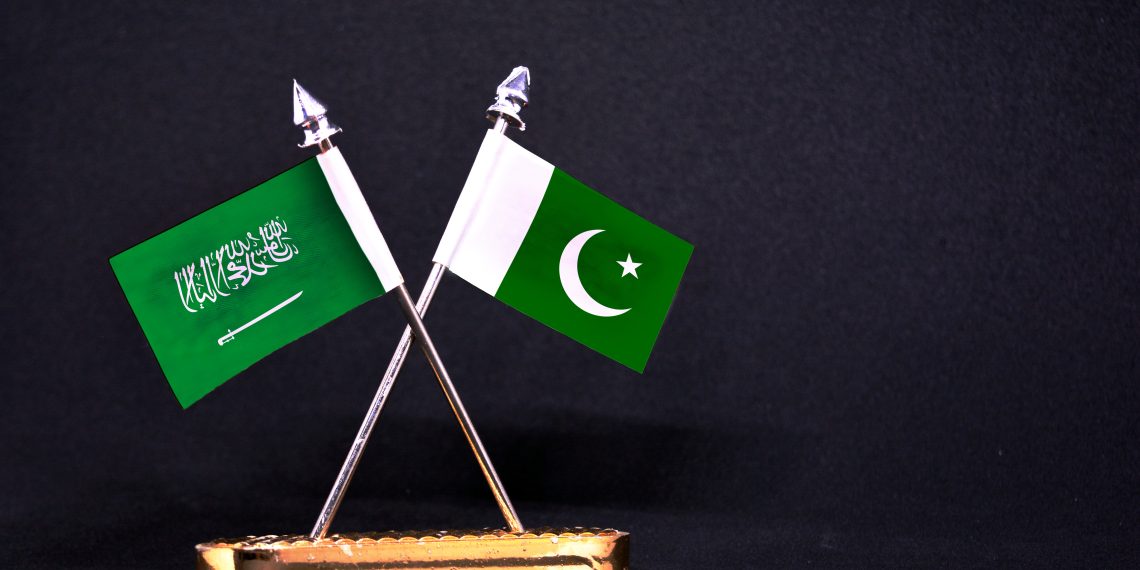During a key visit to Pakistan this week, Saudi Foreign Minister Faisal bin Farhan Al Saud’s agenda is centered on finalizing investment agreements that have been in the pipeline between the two nations, as well as exploring new collaborative opportunities, as highlighted by Islamabad’s representative in Riyadh, Ahmed Farooq.
Prince Faisal’s arrival in Pakistan for a two-day engagement is designed to foster greater economic collaboration and to advance investment deals previously established. His visit follows discussions between Crown Prince Mohammed bin Salman and Prime Minister Shehbaz Sharif in Makkah, where a commitment to fast-track $5 billion in investments was confirmed.
Historically, Pakistan and Saudi Arabia have maintained robust relations across trade, defense, and culture, with Saudi Arabia serving as a second home to over 2.7 million Pakistani expatriates and as the primary source of remittances for the financially constrained South Asian nation.
Ambassador Farooq indicated that Sharif’s recent meeting with the Saudi crown prince led to an agreement to broaden their partnership in diverse sectors. A strategic roadmap for speeding up Saudi investments into Pakistan’s economy was also agreed upon.
Guided by this clear direction of the leadership, the economic teams of the two countries are now in advance talks to finalize partnership proposals in diverse sectors such as energy, renewables, connectivity, mining, agriculture, information technology, construction, human resource development and export and strategic investments,
Farooq stated.
Efforts are intensifying to conclude the deals and identify new cooperation avenues, as evidenced by Prince Faisal’s visit, during which he led a delegation of senior officials from various Saudi ministries.
The delegation’s composition underscores Saudi Arabia’s eagerness to pursue economic plans with Pakistan, according to Farooq. One of the critical elements of the visit was a special interactive session by the Special Investment Facilitation Council (SIFC), which is responsible for supervising all foreign investments in Pakistan.
The envoy noted that numerous projects were deliberated in sector-specific breakout sessions. The Saudi team received briefings on the legal, procedural, and administrative reforms Pakistan has implemented to attract and facilitate foreign investment.
‘Bedrock of support’
Pakistan, currently facing economic challenges, is seeking to bolster its foreign reserves and demonstrate its ability to meet the International Monetary Fund’s (IMF) conditions for foreign financing. Finance Minister Muhammad Aurangzeb is in Washington to negotiate a new bailout program as a $3 billion loan agreement nears expiration.
Saudi Arabia has been a consistent ally, often aiding Pakistan with oil on deferred payments and providing direct financial support to fortify its economy and foreign exchange reserves.
For Pakistan, Saudi Arabia has remained a bedrock of support,
Farooq emphasized. Saudi Arabia’s support has been pivotal in Pakistan’s engagements with international financial institutions and continues to play a central role in Pakistan’s economic strategy. The new government is keen on drawing Saudi public and private investment to spark economic growth and development, while the Saudi leadership is eager to capitalize on opportunities to boost economic, political, and security cooperation with Pakistan.
Farooq mentioned that sectors such as energy, renewables, IT, mining, agriculture, and construction are ripe for future collaboration. The establishment of SIFC symbolizes Pakistan’s commitment to streamline the investment process for Saudi and other foreign investors, acting as a one-stop shop for investment facilitation.
With Saudi Arabia’s expressed interest in collaborating with Pakistan on various projects, Farooq expressed confidence in the imminent influx of Saudi investments into Pakistan, promising a new chapter of economic engagement between the two countries.


